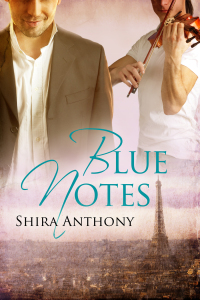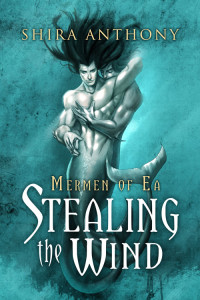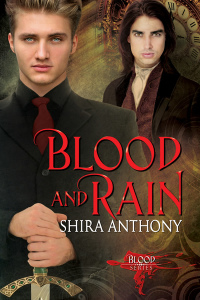Reblogged from Love Bytes Reviews.
In my first post here about series, I blogged about the different kinds of series and their pros and cons. I also asked you to comment and let me know what you like and dislike about series. The responses were really interesting, and were pretty much split down the middle between those of you who won’t read a series until it’s complete, and those of you who are willing to read even if a series isn’t complete. There was also a pretty even split between those who said they prefer sequel (sequential) series and those who prefer spinoff (standalone books in the same universe) series. I’m doing another giveaway after this post, so check it out at the end and find out how you can win a $10 Amazon gift certificate!
 In this post, I’ll discuss the sequel series, in particular, and why and how an author decides to break up a much longer story into multiple books.
In this post, I’ll discuss the sequel series, in particular, and why and how an author decides to break up a much longer story into multiple books.
One of the commenters on my last post wrote, “I feel cheated if there isn’t some resolution to every book I read, particularly if there’s no warning ahead of time that there won’t be. It can seem like a cheap trick to sell more books.” A very valid point, and one I want to address here. Because, although it may seem that writers would want to put out more rather than fewer books in order to make more money, there can be some very compelling reasons why a writer will divide a very long story (sequel series) into multiple books. There is also some truth to the idea that writers divide stories because they want to sell more books, but it’s not exactly what you might think of off the bat.
 Speaking as someone who’s written both sequel and spinoff series, I can honestly say that I don’t set out with the idea that I’m going to write a series. With my Blue Notes series, I had only intended to write a single book: Blue Notes. About 3/4 of the way through that story, however, I realized there were several secondary characters I’d included that I was genuinely curious about and wanted to revisit. Both Antonio Bianchi and Sam Ryan flirt with Jason Greene in that story, and those characters, whom I never intended to write into a longer story, became more three-dimensional to me as a wrote. That’s why I wrote The Melody Thief and, later, Aria.
Speaking as someone who’s written both sequel and spinoff series, I can honestly say that I don’t set out with the idea that I’m going to write a series. With my Blue Notes series, I had only intended to write a single book: Blue Notes. About 3/4 of the way through that story, however, I realized there were several secondary characters I’d included that I was genuinely curious about and wanted to revisit. Both Antonio Bianchi and Sam Ryan flirt with Jason Greene in that story, and those characters, whom I never intended to write into a longer story, became more three-dimensional to me as a wrote. That’s why I wrote The Melody Thief and, later, Aria.
When I write sequel series like Mermen of Ea or Blood, though, I’m also not thinking series. I’ve got a single storyline in mind, with a beginning, middle, and end. And, as is often the case when writing a series that is mostly fantasy, it takes a lot of words and pages to create a new universe for the reader. So what starts out as a planned single novel now becomes a very, very, very long story!
reader. So what starts out as a planned single novel now becomes a very, very, very long story!
Here’s where the behind the scenes sort of stuff happens that many non-writers aren’t aware of. In the publishing universe, most publishers will not print a story shorter than 50,000 to 60,000 words (that’s why you see some books in ebook format only, what are called “novellas”). Why? Part of it has to do with sales, but part of it has to do with the cost of physically printing a book. The sales angle? Books around 65,000 words tend to sell better than books considerably longer than that. Of course, there are always exceptions, but we’re talking about the general rule here.
For example, if the 3 Mermen of Ea books were a single novel, it would be approximately 200,000 words long. Depending on how the book is typeset, that can be over 600 pages long! It’s more expensive to publish, and would cost significantly more, whether in ebook or paperback. Why more expensive in ebook? Because editing a book that long (and formatting it, etc) also takes a lot more time. And most readers don’t want to pay a lot of money for a really long ebook. Because of this, publishers tend to limit the length of books. It’s a business decision for them: they sell more books if the books are about 65,000 words long because most readers prefer them, and also because they are less expensive to publish.
So the writer is in a quandary. Does he cut down his story? Or does he divide it so that it fits into traditional publishing business models? And let me add one more business consideration to consider: how does writing a super long book affect the author’s business? Because writing is a business, of course!
I’ll stop here and continue next month with the author’s side of the business, and how that affects a choice to write a series and where to break stories. That’s an entire post in and of itself. In the 3rd post in this series (*coughs*) of blogs, I’ll tackle the issue of endings in sequel series books (the dreaded cliffhanger, the happily-for-now, and the to-be-continued endings).
I’ll leave you all with a question: What do you, as a reader, think about balancing business and the art of writing from the publisher’s perspective? One commenter who answers the question will win a $10 Amazon gift certificate. Contest ends at midnight on March19th! Can’t wait to hear your responses! -Shira


1 comment